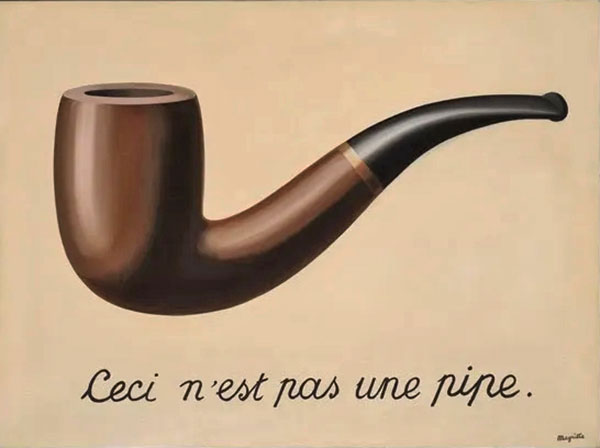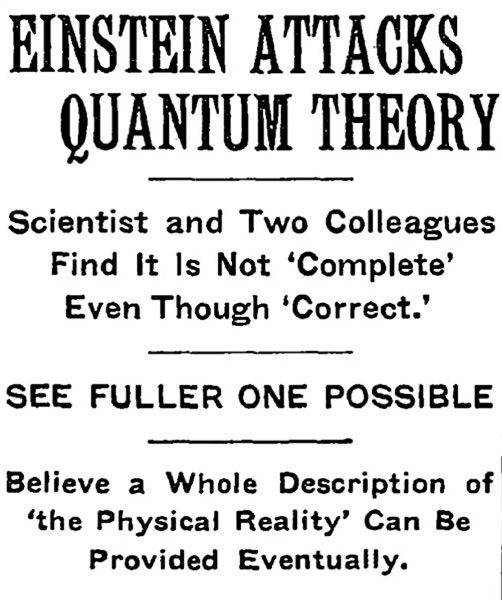|
from Medium Website
on Unsplash
It's called 'contextuality' and it is the essence
of quantum
physics...
I could have had a plain bagel with mashed avocado - or, I could have had nothing at all. But I had the yoghurt and muesli. I know, I know, damn millennials and their hipster breakfast food.
But, also, who cares what I ate for breakfast?
Well, perhaps the universe does...
But, they shouldn't depend on what happens outside of the lab, right?
I mean, why should laser light bouncing around
through crystals and mirrors care what the current value of the S&P
500 is, let alone what I had for breakfast?
But, maybe the temperature of the room is important.
Especially when things go wrong - which is more often than not - the context is where you look for answers.
But some parts of the context are so far removed
from the experiment that there is absolutely no way they could
affect the results, such as that delicious muesli. (Did I mention it
was toasted with a hint of maple and paired with a pot set Greek
yoghurt?)
Most theories automatically rule out most contexts simply by ignoring them. Dependence on other contexts are ruled out by experimentation.
If there is no possible experimental arrangement in the lab that can distinguish what I had for breakfast, then the theory shouldn't make reference to that context.
Think of it as an application of Occam's razor.
As successful as quantum physics is, it is merely an operational theory.
It's like a lab manual with instructions about the preparations and expectations of experiments. It's remarkably accurate, allowing us to engineer materials and devices which form the basis of all modern technology.
But, it doesn't tell us anything about reality... and that bothers a lot of physicists...
by Rene Magritte. Do we see the world "as it is?"
Let's focus instead on scientific realism, the idea that a world of things exists independent of the minds that might perceive it and it is the world slowly revealed by progress in science.
Scientific realism is the belief that the true nature of reality is the subject of scientific investigation and while we may not completely understand it at any given moment, each experiment gets us a little bit closer.
This is a popular philosophical position among
scientists and science enthusiasts.
Particles are real and their properties - whatever they may be - form part of the state of the world.
A slightly more extreme view is that this state of the world can be specified with mathematical quantities and these, in turn, obey equations we call physical laws.
So,
As I mentioned above,
An obvious question is then,
This is the question Einstein first asked with colleagues Podolski and Rosen, making headlines in 1935.
The hypothetical real states of the world came to
be called hidden variables since an experiment does not reveal them
- at least not yet.
Headline as it appeared in
In textbooks that are still used today, no mention is made of the progress in the foundational aspects of quantum physics since the mathematics was cemented almost one hundred years ago.
But, in the 1960s, the most important and fundamental aspect of quantum physics was discovered and it put serious restrictions on scientific realism.
John Bell is the most famous of the trio Bell, Kochen, and Specker, and is credited with proving that quantum physics contained so-called nonlocal correlations, a consequence of quantum entanglement.
Nonlocality itself is wildly popular these days in science magazines with reported testing of the concept in delicately engineered experiments that span continents and sometimes involve research satellites.
But nonlocality is just one type of
contextuality, which is the real game in town.
That's a lot to unpack...
Remember that there are lots of ways to prepare the same experiment - and by the same experiment, I mean many different experiments with completely indistinguishable results.
Doing the exact same thing as yesterday in the lab, but having had a different breakfast, will give the same experimental results.
But there are things in the lab and very close to the system under investigation that don't seem to affect the results either.
An example might be mixing laser light in two different ways.
So, in quantum physics, the mathematical theory has a variable that refers to the mixture and not the way the mixture was made:
Now let's try to invent a deeper theory of reality underpinning quantum physics.
Surely, if we are going to respect Occam's razor, the states in our model should only depend on contexts with observable consequences, right?
If there is no possible experiment that can distinguish how the laser light is mixed, then the underlying state of reality should only depend on the mixture and not the context in which it was made, which, remember, might include my breakfast choices.
Alas, this is just not possible in quantum physics:
So,
Not necessarily.
But, to believe the universe doesn't care what I had for breakfast means you must also give up reality...
You may be inclined to believe that,
But quantum contextuality rules this out.
There is no way to define a reality that
is independent of the way we choose to look at it...!
|




